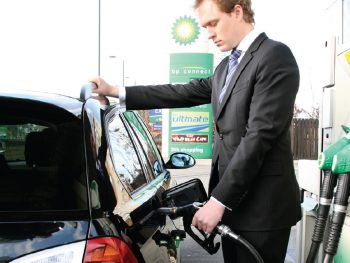Diesel prices hit seven-year high
Prices of petrol and diesel are rising relentlessly, with no signs of coming down in the future.

The average price for a litre of diesel rose 2.7p last month at forecourts, making it the most expensive July to fill up since 2014
RAC data shows diesel rose 2.7p a litre at forecourts last month, making it the most expensive July to fill up since 2014.
And petrol prices have risen for nine months running now, following last month’s 3.4p increase per litre; it was the most expensive July to fill up with petrol since 2013.
It’s not a great picture going forwards either, as demand for oil increases on the back of growing confidence in a global recovery from the pandemic – buoyed by progress in worldwide vaccination programmes and increases in travel and other commercial activity.
As a result, while there was little overall change in the oil price from the start to the end of July, it did nearly touch the $80 a barrel mark near the beginning of the month.
RAC fuel spokesman Simon Williams said: “Right now it’s hard to see what it will take for prices to start falling again. While we’re not past the pandemic by any means, demand for oil is likely to continue to increase as economic activity picks up again, and this is likely to have the effect of pushing up wholesale fuel prices; costs which retailers are bound to pass on at the pumps. Unless major oil-producing nations decide a new strategy to increase output, we could very well see forecourt prices going even higher towards the end of the summer.
“If there is any good news at all, it is that prices would need to rise significantly further – by a further 3p – to reach the highest prices we saw in 2013. But that’s no comfort for the millions of drivers who are faced with paying so much more for fuel than they have done in many years.”
Supermarkets remain the cheapest place to buy fuel in the UK; the price of a litre of petrol is around 3p cheaper compared to the average (132.34p compared to 135.13p) and more than 16p less than at motorway service areas (132.34p compared to 148.78p).
The RAC also said that for drivers planning to change their vehicles in the coming months, now would be a good time to start considering an electric model, where running costs are considerably lower.
Alfonso Martinez, managing director of LeasePlan UK, also urged drivers and businesses to see this as a call to action, rather than as a source of frustration.
“Drivers and fleet-operating businesses need to pay close attention to the rising cost of petrol and diesel, as this will likely continue as economic activity picks up. Rather than simply shrugging this off in an act of resignation, they should see this as a call to action. Electric vehicles present a viable solution to the rising cost of fuel, with the cost to charge a typical mid-size model around 2.27p per mile – which equates to around £9 a month if you were to commute 20 miles a day for work. We’ve now at a point where switching to an EV is both a benefit for the environment and your wallet.”












